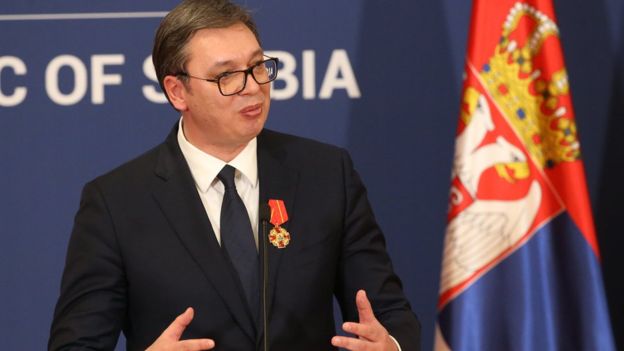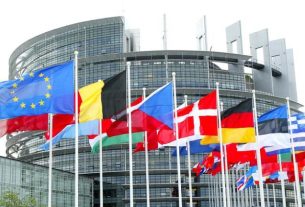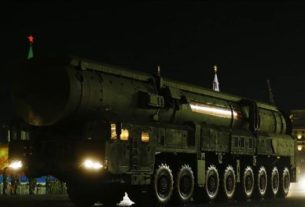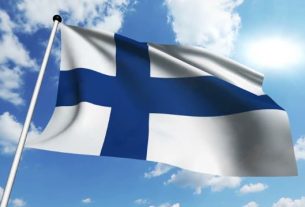Serbian President Aleksandar Vucic has stepped down as leader of the ruling Serbian Progressive Party (SNS), following anti-government protests against two mass shootings that killed 18 people this month.
On Saturday, Vucic told an SNS congress that he would remain head of state, but that a new approach was needed to unite the country.
“A slightly different approach is needed to unite a greater number of those who want to fight for the victory of patriotic Serbia … a successful Serbia that will focus on its citizens, for a country that will not look for reasons for division, but for unification and togetherness,” said the 53-year-old.
The move came a day after tens of thousands of people from across Serbia and from neighbouring Kosovo, Montenegro and Bosnia rallied in the centre of the Serbian capital Belgrade in a show of support for Vucic after the massive anti-government protests against the shootings.
Another anti-government protest was scheduled for later on Saturday.
Leaders of the SNS accepted Vucic’s resignation offer at the party congress in Kragujevac, central Serbia, and appointed defence minister Milos Vucevic to replace him, as Vucic had proposed.
Opposition parties and rights watchdogs have long accused Vucic and the SNS of autocracy, stifling media freedoms, violence against political opponents, corruption and ties with organised crime.
Vucic and his allies deny the accusations.
Vucic told the congress he would stay head of state and would remain a party member. “I will never leave this party, I am proud to have led the best party all these years,” he told cheering delegates.
After his appointment, Vucevic confirmed the SNS will join an umbrella political organisation which Vucic plans to create on June 28.
“If Vucic is a locomotive of that movement, the first railcar would be the SNS,” he told reporters.
Mass shootings shock Serbia
Tens of thousands of Serbians rallied in Belgrade earlier this month after the two consecutive deadly shootings sent the country and surrounding Balkan region into a state of shock.
A 13-year-old suspect carried out an attack that officials say he had planned for months. A day later, a 21-year-old suspect in a moving car opened fire on passers-by in a town south of Belgrade.
Following the shootings, the union of educators of Serbia announced a strike and called for an end to the promotion of violence in the country.
“We demand for a ban on the promotion and public appearance of all convicted criminals, as well as all reality shows in which the participants behave violently,” their statement read.
At their protest march, Serbians demanded better security, a ban on violent content on TV and the resignation of key ministers.
Vucic became president of the SNS in 2012, replacing Tomislav Nikolic who held the post since 2008 when the party was formed as an offshoot of the ultranationalist Serbian Radical Party.
He first served as the deputy prime minister and prime minister, and was then elected president in 2017 and in 2022. His second and last term expires in 2027. Along with its allies, the SNS holds a majority of 164 seats in the 250-member parliament.
A nationalist firebrand during the wars in the 1990s, Vucic later embraced pro-European policies, proclaiming Serbia’s membership in the European Union its strategic goal. He also maintains close ties with Russia and China.__Al Jazeera





